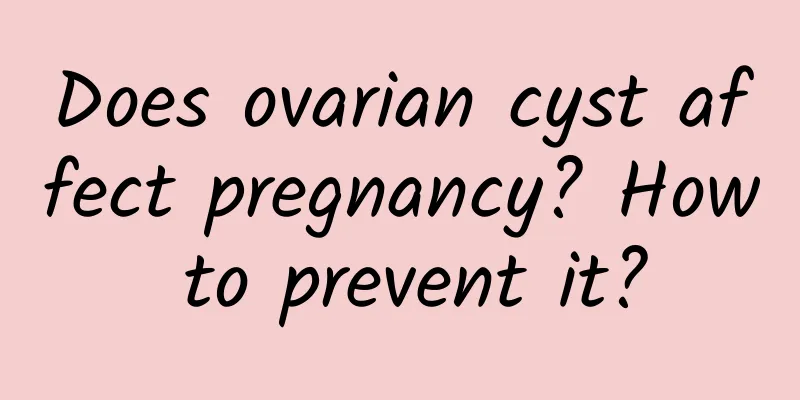Which women are prone to pelvic peritonitis?

|
Which women are prone to pelvic peritonitis? Poor personal hygiene habits may lead to gynecological diseases. Therefore, in order to avoid the harm of pelvic peritonitis, female friends start to clean their private parts. However, because female friends do not have a comprehensive understanding of the methods of cleaning the private parts, they still suffer from gynecological diseases. Pelvic peritonitis is one of them. Because the causes of pelvic peritonitis include cleaning the private parts. Although cleaning the private parts of women can reduce the invasion of bacteria, blindly cleaning the private parts will lead to many gynecological diseases. Pelvic peritonitis is just one of them. However, what we want to understand today is why cleaning the private parts can become a cause of pelvic peritonitis. Let's learn about it together. Regarding "Why does cleaning the private parts become a cause of pelvic peritonitis?" The female private parts are an environment with a relatively balanced acidity and alkali, and frequent washing with washing liquid can easily destroy the normal flora, thus causing various gynecological diseases. Foreign scholars have also found that women who do vaginal douching once a week or more can significantly increase the chance of pelvic infection and moderately increase the risk of ectopic pregnancy. The more frequent the douching, the greater the risk of pelvic infection. For women with intrauterine contraceptive rings, especially those with tail threads, once the vaginal flora is imbalanced, pathogenic bacteria can easily ascend along the cervix to the uterus and fallopian tubes, causing pelvic peritonitis. Therefore, if women do not have discomfort symptoms such as pain, itching, and odor, it is best not to use lotion to wash the vulva and vagina. So, how to prevent washing the private parts from becoming the cause of pelvic peritonitis? In order to prevent the occurrence of gynecological inflammation, women should pay attention to their own cleanliness. In addition to changing underwear frequently, they can also cool boiled water to wash the vulva twice a week. The basin for washing the vulva should be used by one person only to avoid cross infection. "Everything is not done blindly enough", through the above introduction to "Why does cleaning private parts become the cause of pelvic peritonitis?", everyone should be able to understand this sentence. If you are still cleaning your private parts frequently, then you need to go to the hospital for a check-up to avoid the occurrence of pelvic peritonitis. |
<<: Effects of pelvic peritonitis on children
>>: What to do if you have chronic pelvic peritonitis
Recommend
Acute cervicitis may be caused by vaginal inflammation
There are many symptoms of cervicitis, which can ...
Why do women have uterine fibroids? Which women are more likely to get uterine fibroids?
Why do women have uterine fibroids? Why do women ...
Fat man's troubles! Chinese medicine health and weight loss method revealed
What is the biggest worry of fat people? You prob...
Three main causes of cervical erosion
Cervical erosion has become a common disease, and...
Focused ultrasound therapy for the treatment of vulvar leukoplakia
Xiao Shi and Xiao Yang met through a mutual frien...
"Warming the kidney and regulating the spleen, resolving phlegm and removing dampness" to treat amenorrhea
Ye Zi, 28 years old, has been suffering from amen...
What are the harms of abortion? There are 5 major harms
There are many harmful effects of miscarriage, th...
How long after a miscarriage can I have sex? The doctor reminds me not to have sex within one month.
There are many reasons for miscarriage. For examp...
How to relieve dysmenorrhea
In daily life, many female friends are troubled b...
careful! Drinking more than 5 cups of coffee a day may cause weight gain
When it comes to globally popular beverages, ther...
The slimming vegetable soup actress "Little Pepper" drinks like this
It’s so cold in winter that you just want to stay...
The obvious early manifestation of cervical erosion is increased vaginal discharge.
The obvious early manifestation of cervical erosi...
How to care for endometrial thickening during treatment
How to take care of the thick endometrium during ...
Fat Buster! Irisin produced by exercise can burn fat
Doctors often recommend that if you want to lose ...
What are the items to check for premature ovarian failure
What are the tests for premature ovarian failure?...









